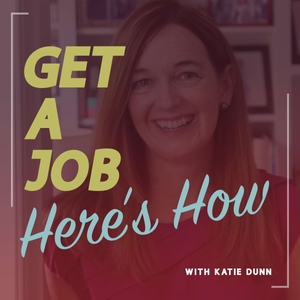
Ep. 5 - Slowness is about finding ‘il tempo giusto’
10/06/22 • 46 min
Her passion for diversity brought her to the European master in human rights and then led her to an eclectic path. She thinks of diversity as an external concept but as well as a concept that applies to ourselves. We are multidimensional beings and we have to find the balance between all the identities within ourselves. We have to defend that right to be who we are and who we are becoming in order to be coherent with ourselves.
What helped her to be coherent with herself was slowness. Slowness is not about working less but about working better. It is about quality, about relationships, about finding the right time - ‘il tempo giusto’ in Italian-, about making sense of what you do.
Her passion for diversity brought her to the European master in human rights and then led her to an eclectic path. She thinks of diversity as an external concept but as well as a concept that applies to ourselves. We are multidimensional beings and we have to find the balance between all the identities within ourselves. We have to defend that right to be who we are and who we are becoming in order to be coherent with ourselves.
What helped her to be coherent with herself was slowness. Slowness is not about working less but about working better. It is about quality, about relationships, about finding the right time - ‘il tempo giusto’ in Italian-, about making sense of what you do.
Previous Episode

Ep. 4 - Networking is connecting authentically with people
In this conversation, Niamh Walsh, a leadership and career coach, looks back at what brought her to coaching and her human rights education underpins her work. The conversation is rich in advice and will give you an idea of what rights-based coaching might look like. Niamh, a graduate from the European Master in Human Rights and Democratisation, started working as a coach and mentor after a more conventional career with the OSCE and the EU.
A move to Oxford and the lockdown caused by the pandemic helped her to pivot from this international career working for inter-governmental organisations to coaching. “I came to coaching very much from my own perspective in terms of experiencing a coach. When I was taking on management roles myself, I was coaching informally and did not have a word for it at that stage. Now I look back, I was coaching and mentoring. It was a part of the job I enjoyed a lot. It brought me a lot of fulfilment. I could see how it impacted others.”
She insists on the importance to stay in touch with your alumni network and gives examples on how it made a difference in her career path to ensure that she always remained involved in the community even when work does not leave you with much headspace. For instance, she found the coach she employed for herself through the mentoring programme of the EMAlumni Association.
She thinks everybody should consider themselves as a coach and consider what coaching skills can bring to their work environment and what it can bring to themselves as a manager, as a leader, as a colleague, as a team member. She describes some of the essentials of coaching: the ability to listen properly, non-judgement, positive action and empowerment.
Looking back, she wished that when she studied somebody told her about the importance of career planning – taking time to think about the type of career you want and setting goals – and also told her that “it is not all about getting a permanent job at the UN and that there are so many paths you could take to have a fullfilling impactful career.”
Next Episode

Ep. 6 - Most journalists are human rights defenders
The guest of our sixth episode is Marina Shupac, an award-winning journalist, self-shooting documentary filmmaker and human rights practitioner from Moldova.
Since she was a child, she wanted to be a journalist but was also already taking a stand on injustice due to her family’s commitment to a more just society in Moldova. She did not perceive it at that point as human rights but more as a political fight. As she grew up in a small town, she only learned about human rights principles when she moved to the capital for her studies.
Studying human rights gave her more self-confidence to cover those issues as a young female journalist. It also gave me a practical understanding of human rights obligations of my government and gave me more instruments to put pressure on government representatives when I interviewed them. I could ask more precise questions knowing the recommendations from human rights bodies. It made my work more credible.
She is currently working for the Office of the High Commissioner for Human Rights and considers that the challenges related to human rights are multidimensional and require people with different skills, and not only lawyers. She sees journalists as human rights defenders and worked on a human rights academy for media professionals. Most journalists are already human rights defenders even though they would not identify themselves as such. I really advocate to perceive journalists as people who also shape policies and hold authorities accountable. I really advocate to include journalists in human rights circles and human rights discussions.
If you like this episode you’ll love
Episode Comments
Featured in these lists
Generate a badge
Get a badge for your website that links back to this episode
<a href="https://goodpods.com/podcasts/the-road-less-traveled-260392/ep-5-slowness-is-about-finding-il-tempo-giusto-30705900"> <img src="https://storage.googleapis.com/goodpods-images-bucket/badges/generic-badge-1.svg" alt="listen to ep. 5 - slowness is about finding ‘il tempo giusto’ on goodpods" style="width: 225px" /> </a>
Copy





